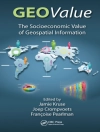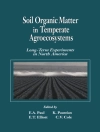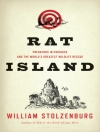This volume includes selected contributions presented during the 3rd edition of the international conference on Water Energy NEXUS, which was held in Tunisia in December 2020. This conference was organized by the University of Sfax (Tunisia), in cooperation with the Sanitary Environmental Engineering Division (SEED) of the University of Salerno (Italy), the Advanced Institute of Water Industry at Kyungpook National University (Korea) and The Energy and Resources Institute, TERI (India). The Water Energy NEXUS series of conferences are supported by the UNESCO World Water Association Programme (WWAP) and the International Water Association (IWA). It also enjoys the patronage of several international scientific societies, associations and organizations and has established a publishing partnership with Springer Nature.
With the support of international experts invited as plenary and keynote speakers, the conference aimed to give a platform for Euro-Mediterranean countries to share and discuss key topics on such water-energy issues through the presentation of nature-based solutions, advanced technologies and best practices for a more sustainable environment within the framework of the ecological transition. This volume gives a general and brief overview of current research focusing on emerging Water-Energy-Nexus issues and challenges and their potential applications to various environmental problems impacting the Euro-Mediterranean zone and surrounding regions. A selection of novel and alternative solutions applied worldwide are included. The volume contains over about one hundred carefully refereed contributions from 48 Countries worldwide selected for the conference. Topics covered in the book include: Nexus framework and governance; Economic evalu ations for investment projects in the water and energy sectors; Innovation of renewable energies and challenges for the mitigation of climate change impact in the water-energy-food-nexus; Advanced technologies and nature-based solutions for the environmental sustainability of the water sector; Water and wastewater technologies for developing countries; Green technologies for sustainable water and wastewater management; Advanced technologies and nature-based solutions in water cycle; Control of hazardous substances and recovery of renewable/valuable resources; Renewable/valuable resources for recovery and utilization; Control of nutrients and hazardous compounds; Energy-saving technologies and future clean energy solutions; Future urban-energy systems with considerations of water and food security; Environmental Biotechnology and Bioenergy; Implementation and best practices. This volume is also an invaluable guide for industry professionals and policymakers working in the water and energy sectors.
Daftar Isi
About the Editors.- Preface.- Keynotes.- Track 1: Nexus framework and governance.- Track 2: Advanced technologies and nature-based solutions for the environmental sustainability of the water sector.- Track 3: Control of hazardous substances and recovery of renewable/valuable resources.- Track 4: Energy-saving technologies and future clean energy solutions.- Track 5: Implementation and best practices.
Tentang Penulis
Prof. Vincenzo Naddeo (納文 森 – Chinese name for the appointments in Taiwan) is Director of the Sanitary Environmental Engineering Division (SEED) at the Department of Civil Engineering of the University of Salerno (Italy), where he drives research and academic activities in the Environmental Engineering fields. He serves as an affiliate professor at both the Department of Civil and Environmental Engineering of the University of Washington (Seattle, WA, USA) and at the Department of Water Resources and Environmental Engineering of the Tamkang University (New Taipei City, Taiwan). Prof. Naddeo serves the Italian Ministry of the Environment as a member of the National Committee on IPPC (Integrated Pollution Prevention and Control). Since 2018 prof. Naddeo is CEO and co-founder of Sponge s.r.l., a Spin-Off of the University of Salerno working on Environmental Technology. His research focuses on advanced water/wastewater treatment, characterization and control of environmental odours and environmental impact assessment (EIA). He developed advanced biological processes for wastewater treatment and control of emerging contaminants, novel ultrasound-based technological processes for treating environmental matrices (solid, liquid and gaseous) and biotechnologies for wastewater re-use with simultaneous energy production within the framework of the circular economy. Prof. Naddeo is the coordinator of several European/international and national research projects, supervisor of Ph D and master students, and member of the scientific board in several national and international conferences where he was often invited as a plenary or keynote speaker. Prof. Naddeo was the general chair of two international conference series, Water Energy NEXUS (since 2017) and Urban Water SECURITY (since 2019). Prof. Naddeo is also actively involved in various scientific organizations, funding agencies, and European networks. He holds seven patents, 4 on innovative technologies for the advanced treatmentof water or wastewater, 2 on the next generation of electronic nose (e.Nose) and 1 patent on an innovative photo-bioreactor for the sequestration of CO2. prof. Naddeo serves the editorial board of several ISI journals, and he is (co-)author of over 200 refereed publications in ISI journals, congress proceedings and book volumes.
Dr. Choo received his Ph.D. degree from Seoul National University, Korea in 1996 and since then has been working on membrane technology for water and wastewater treatment, pursuing breakthrough innovations for the development of novel membranes and membrane processes. His recent research interests include electrochemical membrane filtration, quorum quenching membrane bioreactors, and iron oxide coated media filtration. He is keen to find synergistic strategies for the best practices of separation, treatment, abatement, and recovery in the management of water and wastewater streams. He has been involved in academic societies, such as Korean Society of Environmental Engineers, Korean Society on Water Environment, Membrane Society of Korea, International Water Association, American Chemical Society, and World Filtration Congress as an active member.
Mohamed Ksibi, completed his Ph.D. in 1993 in Applied Chemistry at the University of Poitiers, France. He also gained the Habilitation (HDR) in Chemistry from the University of Sfax, Tunisia in 2003. He was appointed as a full Professor of Chemistry in 2009 at the Higher Institute of Biotechnology of Sfax (ISBS). His areas of research interest include removal and toxicology assessment of persistent organic pollutants in the environment (water and sediment/soil). He has supervised 11 thesis to completion and examined a further 4 Ph Ds. He has also supervised 15 MSc. thesis. He has co-published about 90 papers, 8 book chapters and co-edited 2 books: Recent Advances in Environmental Science from the Euro-Mediterranean and Surrounding Regions (1st Edition 2017, 2 volumes) (2nd Edition 2019, 3 volumes). He is the co-Editor-in-Chief of the Euro-Mediterranean Journal of Environmental Integration (h-index 25).Dr. Ksibi had been the Institute’s Deputy Director of the ISBS from August 2011 until December 2017, he served as the Director of the Department of Biotechnology and Health at ISBS from May 2008 until May 2011. He has also been the chairman for the 1st in 2017, the 2nd in 2019 and the 3rd in 2021 of the Euro-Mediterranean Conference for Environmental Integration.












